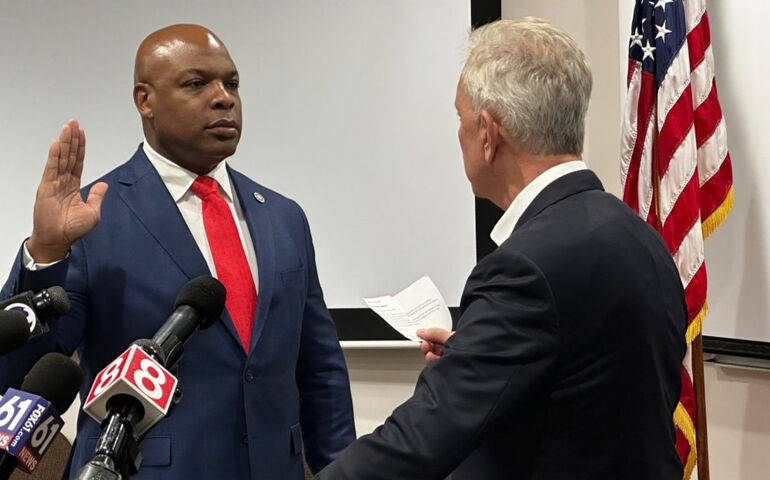Processing Your Payment
Please do not leave this page until complete. This can take a few moments.
-
News
-
Editions
-
- Lists
-
Viewpoints
-
HBJ Events
-
Event Info
- 2024 Economic Outlook Webinar Presented by: NBT Bank
- Best Places to Work in Connecticut 2024
- Top 25 Women In Business Awards 2024
- Connecticut's Family Business Awards 2024
- What's Your Story? A Small Business Giveaway 2024 Presented By: Torrington Savings Bank
- 40 Under Forty Awards 2024
- C-Suite and Lifetime Achievement Awards 2024
- Connecticut's Health Care Heroes Awards 2024
-
-
Business Calendar
-
Custom Content
- News
-
Editions
View Digital Editions
Biweekly Issues
- April 29, 2024
- April 15, 2024
- April 1, 2024
- March 18, 2024
- March 4, 2024
- February 19, 2024
- February 5, 2024
- January 22, 2024
- January 8, 2024
- + More
Special Editions
- Lists
- Viewpoints
-
HBJ Events
Event Info
- View all Events
- 2024 Economic Outlook Webinar Presented by: NBT Bank
- Best Places to Work in Connecticut 2024
- Top 25 Women In Business Awards 2024
- Connecticut's Family Business Awards 2024
- What's Your Story? A Small Business Giveaway 2024 Presented By: Torrington Savings Bank
- 40 Under Forty Awards 2024
- C-Suite and Lifetime Achievement Awards 2024
- Connecticut's Health Care Heroes Awards 2024
Award Honorees
- Business Calendar
- Custom Content
Ronnell Higgins wants to reshape the culture at the CT state police
 MARK PAZNIOKAS / CTMIRROR.ORG
Ronnell Higgins takes oath of office as commissioner of DESPP from Gov. Ned Lamont. He is the second Black commissioner to lead the agency, which includes the state police.
MARK PAZNIOKAS / CTMIRROR.ORG
Ronnell Higgins takes oath of office as commissioner of DESPP from Gov. Ned Lamont. He is the second Black commissioner to lead the agency, which includes the state police.
To understand Ronnell A. Higgins’ approach to leading the Connecticut State Police, look past his career at Yale to his unheralded roles assessing law enforcement in times of crisis after fatal police shootings of Black men in Ferguson, Mo., Portland, Ore., and Minneapolis.
Higgins, 53, is a Black man from a family of cops in New Haven, albeit one painfully familiar with the tensions of being “Black in blue.” He was Gov. Ned Lamont’s surprise choice last fall for commissioner of DESPP, the Department of Emergency Services and Public Protection, an agency that includes the State Police.
Aside from three years as a corrections officer in Bridgeport, the entirety of his career had been spent at Yale: the first 27 years as a campus cop, rising through the ranks to become chief; the final 17 months as associate vice president for public safety and community engagement.
“It would be naive on anybody’s part to think that he was quote, unquote, ‘just the police chief at a university police department,’” said Jim Bueermann, a nationally recognized police expert who drew Higgins into consulting. “First of all, that’s a very complicated policing environment. It’s as complicated as any municipal policing environment is for all kinds of reasons.”
And for at least a decade, Higgins has been an active participant in a national conversation on policing and use of force, taking assignments as an executive fellow of the National Police Foundation and its successor, the National Policing Institute, or as a private consultant assessing police culture, training and tactics.
He took a police training assignment in Minneapolis in 2023, three years after America watched a nine-minute video of a white Minneapolis police officer kneeling on the neck of a dying George Floyd, igniting a debate on police accountability and use of force that led to controversial legal reforms in Connecticut.
“The weight of the world is still on those officers. Many of them feel like their department broke policing in America. And our job was to get them back,” Higgins said. “And it’s tough. It’s been tough nationally.”
The State Police Union bitterly fought the passage of the accountability law passed in 2020, which imposes a duty on police to report and intervene in cases of wrongdoing by fellow officers. Despite legal opinions to the contrary, they complained the new law would increase personal liability.
Higgins disagrees.
“Many felt that accountability was shoved down their throats. They still harbor that resentment as a result of it,” Higgins said. “And my thoughts are we need to move forward. We need to move forward, because at the end of the day, there’s nothing in that bill, in my opinion, that has hurt policing. It has improved policing. Many will argue that it has hurt recruitment. Well, show me the data. Recruitment’s down everywhere.”
Higgins is “a practitioner in residence” at the University of New Haven, teaching about policing to a diverse pool of would-be cops with complicated feelings about what it means to wear a badge. State police recruiters were guest speakers at one of his classes last week.
He also is a member of the P.O.S.T Council that sets certification standards and training requirements for police in Connecticut.
Higgins was on a nine-member team that methodically examined every aspect of the St. Louis County Police Department, the force that responded to the civil unrest after 18-year-old Michael Brown was shot to death by a police officer in Ferguson in 2014. Higgins was on a similar team that assessed policing at Portland State University after two campus police officers killed an armed man who was trying to break up a fight outside a bar in 2018.
“Me being a part of these assessments, going into organizations after something bad or very notable has happened, has informed my approach tremendously,” Higgins said in one of two recent interviews with The Connecticut Mirror.
Ronnell Higgins stands behind a podium in a conference room at the State Capitol. He is listening to questions from members of the press.
Higgins’ approach to the new job included a demand he be given a free hand in making at least a half-dozen outside hires in assembling a C-suite in the agency’s headquarters in an isolated office park off I-91 Middletown. A condition of his taking the job, the Lamont administration agreed.
The new boss’s inner circle includes two women, both lawyers with different pedigrees. His chief of staff is Nicole Lake, a former counsel to former Gov. Dannel P. Malloy and Attorney General William Tong, and his counsel is Sarah Karwan, a career federal prosecutor Higgins wants to help the State Police with professional standards, internal affairs and relations with prosecutors.
Curtis Eller, a retired Stratford police lieutenant who helped develop a community outreach program with the stated desire to “teach police officers and civilians how to safely engage one another,” is a policy adviser. So is Leonard C. Boyle, a retired high-ranking federal prosecutor who once had an earlier version of Higgins’ job.
“Police culture is a very tough nut to crack. And you have to be very smart about what you’re doing,” said Bueermann, a former police chief in Redlands, Calif. “Being smart is all about using the right strategies, but sometimes it’s also about bringing people in that you can trust because you don’t have time to develop these long-term, multi-year relationships that you develop, typically, if you come up through the ranks in agencies.”
If Higgins’ terms for taking the job showed a certain boldness, the reality is he initially, almost reflexively, declined to entertain leading an agency roiled by staffing shortages, union unrest, a white trooper facing criminal charges in the shooting death of a Black man, and a federal investigation into falsified traffic stops.
Higgins said his hesitance did not arise from the challenge of being an outsider and change agent in an agency reputed to be resistant to both. It wasn’t even that if Higgins took the job, he would have to take a pay cut bigger than a trooper’s starting salary.
“It was really about, ‘Nah, you really don’t want me,’” Higgins said, suggesting he was caught off guard by the call. “Between the first contact and the second contact, I really had an opportunity to — I probably said ‘no’ too quickly, that’s the God’s honest truth — but I had an opportunity to reflect on the opportunity.”
(He also concluded that the $81,000 pay cut would be partially offset by being able to begin collecting a Yale police pension on top of his projected annual state salary of $232,000.)
In August, the union that represents most troopers announced a vote of no confidence in the agency’s two top leaders, complaining they had failed to defend the department against the fake-ticket allegations. Andrew Matthews, the former trooper who serves as executive director of the union, gives Higgins and his team high marks for addressing the scandal.
An independent investigation released Feb. 1 found “significant failures” by the State Police to follow the state’s racial profiling law, while also revealing that the scope of troopers and constables who intentionally falsified data was “far more limited” than what was suggested by an audit last summer.
Higgins met the following week with Sen. Gary Winfield, D-New Haven, who co-chairs the Judiciary Committee, and representatives of the ACLU and NAACP to detail the agency’s missteps in confronting the ticket issue. Winfield said the briefing was detailed and focused on ways to avoid a recurrence.
In March, a jury acquitted Trooper Brian North of manslaughter in the fatal shooting of 19-year-old Mubarak Soulemane following a high-speed chase in 2020. North’s actions are subject to an internal investigation about whether North should return to duty.
His reflexive rejection of the initial job offer was uncharacteristic. Higgins does not lack for self-confidence, nor ambition. John DeStefano, the former mayor of New Haven, said he watched Higgins’ rise through the ranks at Yale, never thinking it would be his final career stop.
Bueermann was introduced to him by a mutual friend more than a decade ago at a police chiefs’ conference in San Diego. Bueermann already had a national reputation then as a police reformer. Higgins peppered him with questions.
“It only takes a very short period of time to really get his deep intellect and his humanity. At the same time, you get that he is a physical presence. You cannot ignore the physicality of the guy,” Bueermann said, laughing. “And just instantly you get this is a guy that has charisma, has command presence.”
Higgins is 6-foot-1, 270 pounds, with broad shoulders, a shaved head and a theatrically deep voice. Bueerman said he mistook him for an NFL linebacker.
In 2015, Higgins was accepted as a graduate student at the Center for Homeland Defense and Security at the Naval Post Graduate School, earning a master’s degree in March 2020. His thesis was an analysis of the Boston Marathon bombing and the absence of any campus police assigned to the Joint Terrorism Task Force in Boston.
His friend and fellow P.O.S.T. Council member Vernon Riddick Jr., the former police chief of Waterbury and current chief of West Hartford, said Higgins obviously could not have foreseen the offer from Lamont.
“But he was preparing himself for that opportunity, whatever that opportunity may be, by having a breadth of experience and education to be able to take on whatever channels that might present themselves in the future,” Riddick said. “And then, lo and behold, guess what?”
On Oct. 3, the CT Mirror reported that James Rovella would be retiring as commissioner. The next day, Lamont named Higgins as his choice to succeed Rovella and also announced the retirement of Col. Stavros Mellekas as deputy commissioner and the uniformed commander of the State Police.
Higgins was sworn in the following month. His wife, Robin, a former New Haven police officer, pinned a gold badge on his lapel. They are parents of two college students, neither interested in policing. Their daughter is studying business and marketing; their son, molecular biology.
Watching was his father, who has been both an inspiration and a caution to Higgins.
Lt. Reginald Higgins Sr. was one of the few Black ranking officers in the New Haven Police Department on a night in 1991 when his oldest son, Reginald Jr., a Golden Gloves boxer with Olympic aspirations, complained of being beaten by police while handcuffed after a breach of peace arrest outside a nightclub.
Reginald Sr., who challenged the official account based on what other officers at the scene told him, was taken off the street and assigned to a desk. Years later, when Ronnell applied to the NHPD, the department never responded.
An irony was that the New Haven Police Commission, the same panel that assesses NHPD applicants, had to approve his application to become a Yale police officer.
For years, Higgins avoided talking about his brother’s beating, the end of his father’s career and his own snub by the NHPD. Now, it is part of his pitch to young people — that the best way to reform policing is from within.
“This sounds a little corny,” Higgins said. “But I say this all the time to my students, and I say this to young people who are thinking about careers in policing but are a little bit cautious: ‘If not you, then who?’”

2022 Giving Guide
This special edition informs and connects businesses with nonprofit organizations that are aligned with what they care about. Each nonprofit profile provides a crisp snapshot of the organization’s mission, goals, area of service, giving and volunteer opportunities and board leadership.
Learn more
Subscribe
Hartford Business Journal provides the top coverage of news, trends, data, politics and personalities of the area’s business community. Get the news and information you need from the award-winning writers at HBJ. Don’t miss out - subscribe today.
Subscribe
2024 Book of Lists
Delivering Vital Marketplace Content and Context to Senior Decision Makers Throughout Greater Hartford and the State ... All Year Long!
Read Here-
2022 Giving Guide
This special edition informs and connects businesses with nonprofit organizations that are aligned with what they care about. Each nonprofit profile provides a crisp snapshot of the organization’s mission, goals, area of service, giving and volunteer opportunities and board leadership.
-
Subscribe
Hartford Business Journal provides the top coverage of news, trends, data, politics and personalities of the area’s business community. Get the news and information you need from the award-winning writers at HBJ. Don’t miss out - subscribe today.
-
2024 Book of Lists
Delivering Vital Marketplace Content and Context to Senior Decision Makers Throughout Greater Hartford and the State ... All Year Long!
ABOUT
ADVERTISE
NEW ENGLAND BUSINESS MEDIA SITES
No articles left
Get access now
In order to use this feature, we need some information from you. You can also login or register for a free account.
By clicking submit you are agreeing to our cookie usage and Privacy Policy
Already have an account? Login
Already have an account? Login
Want to create an account? Register
Get access now
In order to use this feature, we need some information from you. You can also login or register for a free account.
By clicking submit you are agreeing to our cookie usage and Privacy Policy
Already have an account? Login
Already have an account? Login
Want to create an account? Register






0 Comments